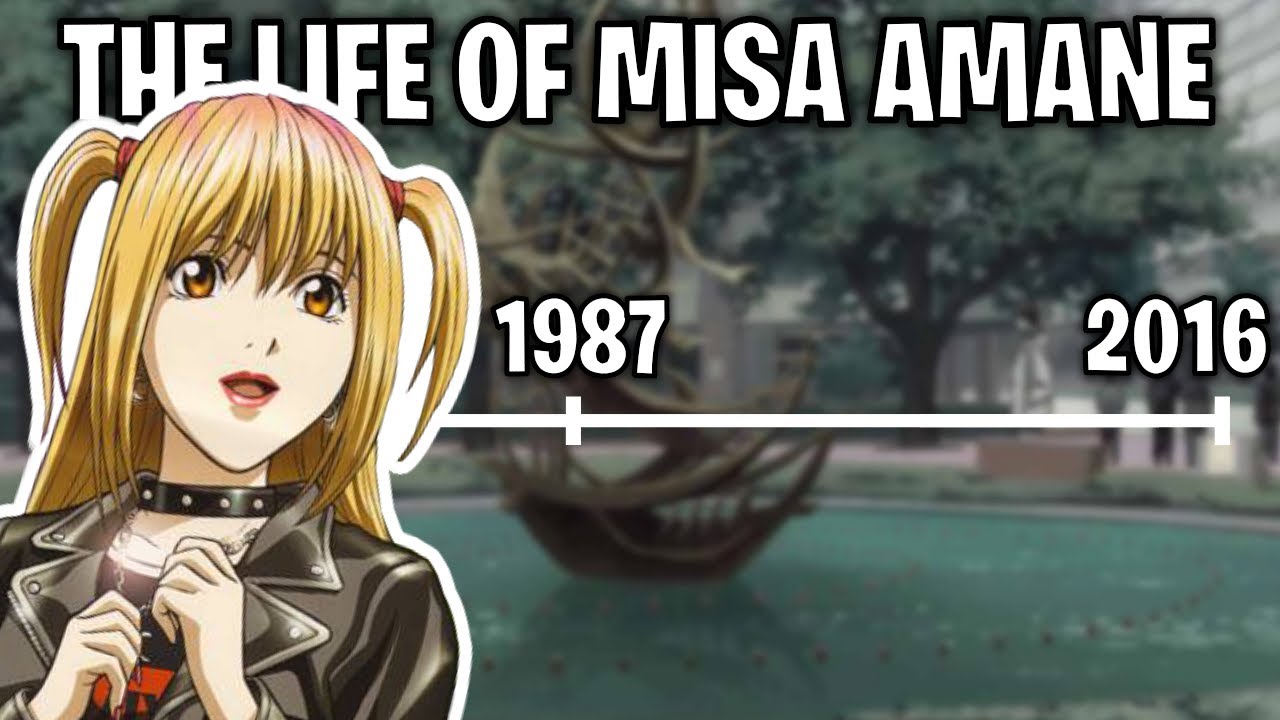In the realm of anime and manga, few characters have evoked as much fascination and controversy as Misa Amane from the renowned series “Death Note.” Often perceived as a tragic figure enveloped in darkness, Misa’s character arc is laden with complexities that challenge conventional notions of morality and agency. From her enigmatic allure to her profound vulnerabilities, Misa Amane remains a captivating enigma deserving of deeper exploration.
The Emergence of Misa Amane:
Misa Amane first emerges in “Death Note” as a pop idol, adorned with fame and adoration. However, beneath her glamorous exterior lies a tumultuous past marked by personal tragedy. The death of her family leaves her shattered, vulnerable, and yearning for solace. This vulnerability becomes a pivotal aspect of her character, shaping her actions and motivations throughout the series.
The Encounter with the Death Note:
Misa’s fate takes a dramatic turn upon encountering the Death Note and its wielder, Light Yagami. Entranced by Light’s charisma and driven by her desire for justice, Misa willingly embraces the role of the Second Kira, becoming a formidable ally to Light in his quest for a new world order. However, her allegiance comes at a steep price, blurring the lines between justice and vengeance.
The Duality of Misa Amane:
At the heart of Misa Amane lies a profound duality—a juxtaposition of innocence and darkness, vulnerability and manipulation. On one hand, she exudes an aura of childlike naivety, clinging to her idealized vision of love and devotion towards Light. Yet, beneath this facade lies a cunning and calculating individual capable of ruthless acts in the name of her perceived justice.
Misa’s infatuation with Light fuels her unwavering loyalty, blinding her to his manipulative nature and the moral implications of their actions. Her willingness to sacrifice everything for Light’s cause underscores her tragic flaw—a desperate longing for validation and belonging in a world that has betrayed her.
The Tragic Romance:
Central to Misa’s character is her entangled relationship with Light Yagami—a complex dynamic characterized by manipulation, obsession, and unrequited love. Misa’s devotion to Light transcends reason, becoming both her salvation and her downfall. Despite Light’s indifference towards her affections, Misa remains steadfast in her devotion, willing to endure any hardship for a fleeting moment of acknowledgment.
The tragic nature of their romance lies in its inherent imbalance—an imbalance of power, emotion, and morality. While Light views Misa as a mere pawn in his grand scheme, Misa sees him as her savior, her beacon of hope in a world consumed by darkness. Their relationship serves as a poignant reminder of the destructive nature of obsession and the blurring of moral boundaries in the pursuit of love.
The Redemption of Misa Amane:
Throughout the series, Misa’s character undergoes a profound evolution—one marked by moments of introspection, remorse, and redemption. Despite her initial fervor for justice, Misa grapples with the consequences of her actions, confronting the moral ambiguity of her alliance with Light. As the series progresses, Misa begins to question her blind loyalty, recognizing the futility of her sacrifices in the face of Light’s manipulation.
Misa’s redemption arc culminates in her ultimate sacrifice—an act of selflessness born out of a desire for atonement. In relinquishing her Death Note and forsaking her memories of Light, Misa symbolically breaks free from the shackles of her past, embracing a newfound sense of agency and autonomy. Though her fate remains uncertain, Misa’s journey towards redemption serves as a beacon of hope amidst the darkness that pervades the world of “Death Note.”
Conclusion:
In the intricate tapestry of “Death Note,” Misa Amane emerges as a tragic figure—a reflection of the complexities of human nature and the blurred lines between right and wrong. From her tumultuous past to her entangled relationship with Light Yagami, Misa’s character arc is a testament to the enduring allure of moral ambiguity and the fragility of the human psyche. Despite her flaws and shortcomings, Misa’s journey towards redemption resonates with audiences, serving as a poignant reminder of the power of self-discovery and the possibility of redemption in even the darkest of circumstances.
